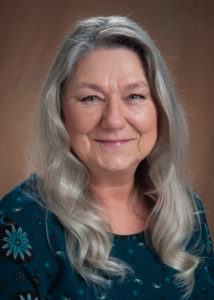PUBLISHED MARCH/APRIL 2019
by
Deb Vanasse, Reporter,
IBPA Independent magazine -

Deb Vanasse
Marketing a book can be complicated, time-consuming, and expensive. Authors and publishers should join forces to implement a plan that works.
If ever there was a time when authors could simply write books and cede all sales-related responsibilities to publishers, that era is no more. These days, publishers expect authors to help market their books, and authors sometimes complain that they're expected to take on too much.
But marketing needn't entail a drastic shifting of responsibilities--or of blame--if sales don't match expectations. A truly collaborative approach engages both authors and publishers through a balance of education, planning, and dialogue.
Partners from the Start
For many publishers, collaborative marketing begins during the acquisition process.
"If an author shows unwillingness to share in marketing, we will not acquire the manuscript," says Haris Ioannides, managing director at
Armida Publications. "What we keep telling them is that we can open some doors for them, but it's up to them to step in and get the message across."

Lindy Ryan, Publisher, Black Spot Books
At
Black Spot Books, publisher Lindy Ryan also emphasizes a collaborative approach from the start.
"We look for authors who want to help promote and market their work, who have a brand, and who are willing to be active participants in their own success," she explains. "As an author-centric publishing house, we believe the author-publisher relationship is a partnership and that we can achieve best results in a book's success by focusing on building a long-term, collaborative relationship from query through post publication."
Yet even as publishers screen for authors who'll engage in marketing, they're mindful of differences. "We've learned over the years not to expect everything from everyone," says Ioannides. Instead, the company draws up marketing plans that make the most of each author's strengths. "In our experience, it's always better to have an author who is active and engaged, even if their chosen medium is less effective than an author who will make a TV appearance but overall is less active," he explains.

Suzzanne Kelley, Editor-In-Chief, North Dakota State University (NDSU) Press
Grounded in an assessment of what authors bring to the table, collaborative marketing also involves education and ongoing dialogue. At
North Dakota State University (NDSU) Press, editor-in-chief Suzzanne Kelley finds most authors eager to learn.
"Even authors who have previously published elsewhere lack a full understanding of how production must include elements of marketing from day one," she says. "They seem to take some pleasure in understanding the process and in having some agency in making their work marketable."
Toward this end, Kelley uses an author's questionnaire to open the marketing discussion. "Our author's questionnaire includes questions about what inspired the author's work and about aspects of their research," she explains. "Their answers help us to write copy for press releases, jacket material, and social media. The author's questionnaire also helps us to locate potential review journals and awards relevant to the particular work."
Even with 200-plus authors under management,
Sunbury Press also makes a point of engaging authors in dialogues about marketing.
"We have several book marketing meetings per year with our authors," says CEO Lawrence Knorr. "These are conference calls where we share the latest ideas and techniques--what's been working and what hasn't."
Black Spot extends the dialogue via a private Facebook group in which they share marketing education and opportunities with their authors. "We regularly participate in industry learning opportunities and share information back with our authors, and we do our best to learn from them, as well," Ryan explains.
Making a Plan
In determining the components of a collaborative marketing plan and the timeline used to achieve it, publishers consider production schedules and resources. Sunbury works distributor and bookstore markets while engaging authors in media outreach and the pursuit of local and regional opportunities.
"We typically launch within six months of contract, so we jump right into a marketing plan that includes the production process milestones," Knorr says.
"We have had much better performance releasing and then promoting versus promoting and then releasing. Early reviews are most impactful at achieving buzz."
Working from a longer timeline,
NDSU Press recommends authors ramp up their social media engagement 12 months prior to publication. "Some authors, particularly among our nonfiction writers, are wary of social media," Kelley admits. "But they do learn to appreciate the full range of marketing activities once they see how readings, announcements, social media, and award nominations bump up the attention to their work."
Six months out from launch, Kelley helps authors brainstorm potential sites for readings, including hometown venues and alma maters. Social organizations can also be a great fit, she says, especially if authors buy copies at their discount and donate a portion of their profits from the reading event back to their hosts. "This plan works beautifully for getting the author's work out into the public and supporting the entity that hosts them, and it is a feel-good proposition for the book buyer," Kelley says.
At the same time, Kelley explores with her authors ways their books can fit into other venues, such as tie-ins to museum or gallery exhibits. They also collaborate on a press release template, and the author shares mailing addresses for announcements. Three months prior to launch, the reading sites have been booked, and Kelley suggests authors start selecting excerpts and practicing for their readings. When the book is released, it's a matter of the author showing up, standing up, and delivering, as Kelley puts it. Through the launch year, thanks go out to supporters and readings continue.

Harris Ioannides, Managing Director, Armida Publications
At Armida, Ioannides generally concentrates collaborative marketing within a four-month window.
"All authors, prior to launch, are required to start focusing more on their social media as well as identifying people willing to assist in our efforts to promote the book," he says. "In fiction, this is trickier, but in nonfiction, it's relatively easy."
As the launch date approaches, Armida asks authors to increase their public visibility via television, radio, and print. For social media engagement, the company evaluates an author's skill set and offers instruction on the platforms that make the most sense. "We discourage them from being too aggressive with their online presence, and we help them refine their message," Ioannides explains.
Immediately after signing with Black Spot, authors are encouraged to develop a social presence, website, and newsletter. In addition, the company suggests they maintain a regular blog and engage with writing groups, libraries, and booksellers in their local area. The press also collaborates with authors in the development of media kits, pitch lists, and event planning.
Black Spot's strategy includes author engagement on the company website and ongoing dialogue about effective marketing tactics. "We have some contribution requirements in-house for guest posts and interviews, and we maintain an active author-event calendar where we cross-pollinate our authors events with their readers and ours," Ryan explains.
"We ask authors to share their marketing efforts so we can help support them, and we do our best to help them find new venues to book indie ad placements and interact with the blogging community at large."
Striking a Balance
For the few authors who think that their only job is to write the book and then leave everything else to the publisher, Kelley offers a reminder that none of their labors matter if the book doesn't reach readers. "To that end, authors must engage in the marketing process," she affirms.
"After all, who knows the work better than the writer?"
At the same time, abdicating all marketing to authors makes little sense. As Knorr points out, "Authors expect publishers to know how to sell books. Through economies of scale, we can afford access to opportunities too expensive for the typical author to take on regularly."
The balance comes in the form of genuine collaboration in which author and publisher share ideas and build on one another's strengths. "Be open and ask for feedback," Ryan advises. "It's important not just to educate authors on marketing and support them, but to also learn from them. Many 'indie' published authors can often bring amazing ideas and followings into more traditional marketing efforts."
Ioannides agrees that the education involved in collaborative marketing goes both ways. "Over the years, we've learned a lot from authors, and we've tried to adopt some tactics to our marketing model," he says. "Most authors, however, need to be guided through the process, and we've realized that this should be done carefully. Too much information or too many tasks could turn them off the whole process."
He also warns publishers to be mindful of author expectations.
"Sometimes a book just won't take off regardless of our best efforts," he explains. "Author/marketers need to understand this from the beginning. It's a very tough environment, and they should be fully aware that their chances for a hit are at best slim."
Better Together
As Ioannides points out, marketing a book can be complicated, time consuming, and expensive, which is all the more reason for publishers and authors to join forces.
While it can be difficult to know exactly how much value author participation adds to the mix,
Knorr notes that sales generated from author appearances can be measured, as can sales bumps attributable to media appearances. "We have found an author with a pleasant personality who is active tends to do very well and build their platform rapidly," he says.
And not to be missed are the intangible benefits of working together. "We have learned that our authors really enjoy contributing and collaborating, as well as the transparency in how we are working together," Ryan says. "This builds trust and investment in the author-publisher relationship and allows us to work together toward the same goal."
So why go it alone? Handled properly, collaborative marketing is a winning prospect for both publishers and authors.
Co-founder of 49 Writers and founder of the author co-op Running Fox Books, Deb Vanasse is the author of 17 books. Among her most recent are the novel Cold Spell
and a biography, Wealth Woman: Kate Carmack and the Klondike Race for Gold
. She also works as a freelance editor.